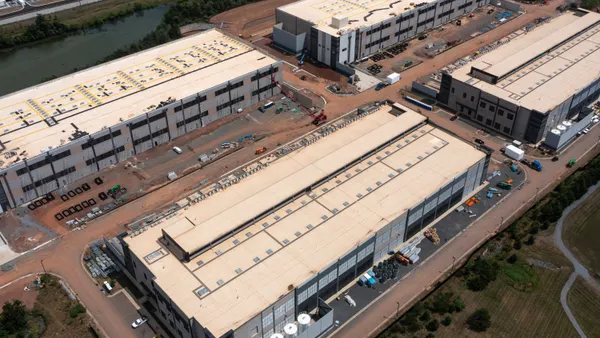Dive Brief:
- VMware streamlined its software portfolio to focus on its VMware Cloud Foundation full-stack offering and its vSphere virtualized environment, the company announced Tuesday.
- “What we have done is pivoted our strategy to truly focus on making VCF the best available private cloud platform,” Prashanth Shenoy, VCF Division VP of product marketing, said during a Thursday press briefing.
- As part of the move, the company announced enhancements that ease integration of existing VMware software integration, edge compute deployments and network configuration, as well as several private cloud security add-ons, VMware said in an announcement.
Dive Insight:
The portfolio pivot marked the first official update to the product suite since VMware’s November acquisition by chipmaker Broadcom, a move that stoked enterprise concerns about changes to product bundling, pricing and licensing practices.
VMware’s near ubiquity magnifies the impact of even the smallest shift in strategy under Broadcom ownership. The Tuesday announcement cleared up some of the uncertainty around the virtualization software company’s near-term plans and highlighted major changes.
After a period of portfolio reassessment and customer consultation, the company prioritized simplifying its solution suite and organizational structure, narrowing its focus to “the minimal critical products,” Shenoy said.
Shenoy characterized the company’s previous suite as a sprawl of 168 different products and bundles and offers, and close to 9,000 SKUs.
“While it gave our customers choice, it made it extremely complex to understand what is the right choice,” Shenoy said. “Our job right now is to truly clean up the seams around these products and make them look, feel, act and behave like a single private cloud platform.”
To help rationalize the portfolio, the company restructured, consolidating five business divisions into a single unit focused on delivering a “single, consistent platform,” according to Shenoy.
In addition to prioritizing the VCF large-enterprise platform, the unit will support the vSphere virtualized environment for smaller customers who don’t need a full-stack solution.
“We have drastically simplified that into what our customers truly want,” Shenoy said.
Shenoy confirmed the shift to subscription-based pricing as VMware phases out perpetual licenses, adding that the new billing model cuts VCF costs in half, to $350 per core per year from $700.
“This is the industry standard that every other infrastructure and enterprise software vendor has brought in for the last several years and VMware, when we were an independent company, was the last one to still do perpetual licensing,” Shenoy said.
To promote hybrid cloud interoperability, VMware has shored up its hyperscaler partnerships. The company expanded its integration with Microsoft, making VCF licenses transferable from on-prem to Azure in May, and inked a similar agreement with Google Cloud in February.
Broadcom President and CEO Hock Tan tried to quell rumors the VMware Cloud on AWS integration was ending in a May 6 blog post. While the program is ending, customers who “previously purchased VMware Cloud on AWS from AWS will now work with Broadcom or an authorized Broadcom reseller to renew their subscriptions and expand their environments,” Tan said.
Customers with active subscriptions purchased from AWS will continue receiving invoices from AWS until the end of their term, Tan said.
The AWS transition highlights the specter of instability that’s haunted the acquisition, a notion VMware is working to dispel.
Shenoy noted that the company’s leadership solicited feedback from CIOs, CFOs and CEO at over 250 global companies in the 18 months since the Broadcom deal was announced.
“We are extremely aware of the concerns our customers have in terms of this shift to move to a full stack,” Shenoy said. “We are working with them to have a phased approach so they can show the value at every part of the pace, not only to the IT side, but also to the CFO side.”













